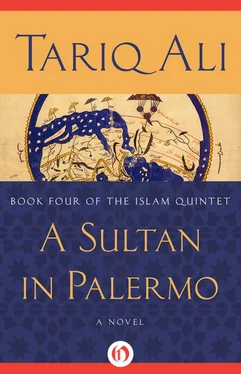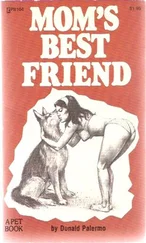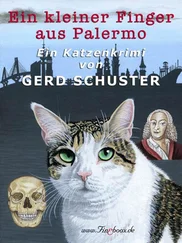He saw Khalid riding towards them, waving. Idrisi waved back. The boy has lost a mother and a grandmother in the space of a year. A growing boy needs a woman in the household. Umar should marry again.
‘Jiddu, Jiddu,’ the boy was shouting, as he got closer. He abandoned the horse he had been riding bare-backed and boarded the cart, embracing his grandfather and managing a broad smile as he was introduced to his new aunt and Ibn Thawdor. How he had grown over the last six months. A beard and moustache were sprouting on his face. Elinore hoped her father would not refer to them and embarrass Khalid, but was disappointed.
‘I’m glad to see a beard on the way. Have you decided whether you want to grow it long or short?’
‘I do not want to grow it at all, Jiddu. No beard. No moustache.’
‘Unthinkable, boy. Unthinkable. Everyone in our family has grown one or the other. I shall speak with your father. We shall see what he has to say on this subject.’
‘The Trusted One says that these things do not matter at all.’
‘Then why does he grow a beard?’
‘Because he’s too lazy to shave it off. He’s looking forward to seeing you again.’
‘Is he here?’
‘Yes, of course. He came with us. He and Abu have become very close friends.’
There goes my estate, thought Idrisi.
The rest of them, too, had sighted him and were waiting to receive him. Sakina kissed his hands and he hugged and kissed her head. Her husband was present as well with the twins. He embraced Abu Khalid with special warmth. They were all introduced to the newly wed couple. Sakina, having lost a sister, was anxious to please the new one. She took Elinore and Ibn Thawdor to their rooms. Idrisi looked around him.
‘Where is Uthman?’
‘I’ll take you to him,’ replied Khalid.
The sight of his first-born had always had a disquieting effect on him. He must be thirty-five this year. The woman who looked after Uthman saw them approach. At least she’s still alive, Idrisi thought to himself. Her strong bony frame must have helped her survive the worst of a hard life. Then he saw Uthman hiding behind a tree and observing him.
‘Peace be upon you, son. Will you not come and greet your old father?’
Idrisi was shocked as he watched Uthman emerge from hiding. He had aged beyond his years. His hair was white and he walked with the step of a frail old man. Yet, he spoke in a strong, self-assured voice. ‘Peace upon you, Abu. It is good to see you after so many years. You know, of course, that my mother and sister were killed by Roman soldiers.’
‘Uthman, it’s nice to see you after all these years. Is there anything you need? Anything?’
‘I need a wife, Abu. A wife.’
‘Do you have anyone in mind?’
Uthman took his father by the arm and walked him to the sheep pen. He pointed to a sheep.
‘Yes I can see Uthman. Sheep.’
‘That one,’ he said pointing again, ‘I want to marry her. Don’t tell me it isn’t permitted Abu. Who doesn’t permit? Who?’
Idrisi realised that a reference to al-Quran would not carry much weight with his poor son. He decided to try something else.
‘The Roman Emperor has forbidden marriage between humans and animals.’
Uthman yelled, ‘I know that, of course. It’s to defy him that I will go through with this marriage. Let his soldiers come. We will trap and kill them. Have you got your shield and spear ready, young Khalid?’
‘I have, uncle.’
‘Go and bring them.’
As Khalid disappeared Uthman sat down on the chair beneath the tree and spoke again.
‘It was the great Greek thinker Pythagoras who taught us that humans were reincarnated as animals, father. Did you know that? Please arrange my wedding.’
‘I did know that, son, but where did you hear about it?’
‘In your library. I often go and read. There are many books of interest. I enjoy that a great deal.’
Tears filled his father’s eyes. What had gone wrong with his child? The ancients wrote of people losing their minds, but had no cure. There must be a cure. Why should a mental ailment be ignored or be dependent on remedies based on pure superstition?
‘Will you not come into the house and break bread with us?’
‘I can’t, Abu, because you will sit down and eat my mother-in-law. I saw her being killed, unclothed, marinated, after which little spears of garlic pierced her body and then they covered her in wild thyme because even they were ashamed of her nakedness. You can see her now being roasted gently on the fire.’
‘Tomorrow, I promise we will not consume any meat. Will you eat with us then?’
‘With great pleasure, Abu. I am glad to see you again. And I was glad to hear from my nephew that your book was completed. Thank you for coming to see me.’
As Idrisi walked back to the house he reflected on the fact that the only member of his family who had shown any interest in his book was his mentally disturbed son. Later, Sakina told him that on most days, apart from his conversations with the animals, Uthman was completely normal. It was only when he imagined the soldiers were going to find and kill him that he left the house and hid outside for days. And he was frightened of visitors — he thought they were spies who would return and inform on him to the commander of the Roman Legion in Siracusa.
‘Why has he aged so much?’
‘It has happened slowly, but we do not know why. Ummi thought it must be related to the disease.’
‘I’m not sure about that at all.’
Khalid, who had been listening to them, had another theory.
‘I think it’s sadness that has turned his hair white. Day after day, he sits in his chair and watches the animals being slaughtered. It really upsets him. You know something, Jiddu, I sit with him when he talks to the animals. He tries to teach them our history and about our Prophet and then the battles, but usually he talks to them about ancient Greece and its great philosophers. I have learnt a great deal from him. Why can’t we let him marry who he wants?’
‘Khalid!’ warned his aunt.
‘The boy could well be right on why he has aged prematurely. Is there no way of moving him away from the animals? What if we removed all the animals from the estate?’
The suggestion panicked Khalid. ‘Don’t ever do that, Jiddu. He would only think they had all been killed and would kill himself.’
‘You seem to know him better than anyone else, my child. Surely, one thing that could be easily organised is to make sure the animals are slaughtered at night when he is asleep. If it causes him so much distress, why do it in front of him? What do you think?’
Khalid thought for a while. ‘It is a good idea, but he knows them all and would still miss them, but it would still be a better way.’
That same evening Sakina instructed the butcher, and the lambs and goats were removed at night. Over the next week Uthman appeared much happier and one afternoon whispered to Khalid, ‘My friends are learning how to escape. They know they’re about to be slaughtered and run away each night. I told them to go and hide in the caves near the sea. I hope my fiancée doesn’t run away.’
‘But my dearest uncle, wouldn’t you rather she ran away? What if they killed her?’
‘You are a very clever boy. I’m proud of you. I suppose I’ll have to marry someone else.’
That night the sheep that had caught Uthman’s eye was taken from the pen and made ready for the kitchen the next morning. They ate her at the midday meal and Idrisi noticed Khalid picking nervously at the meat rather than eating it properly.
Perhaps there is no medicine for his disease, thought Idrisi, but if there is a cure, it must involve entering his head and Khalid has done so more than any adult in the household.
Читать дальше












